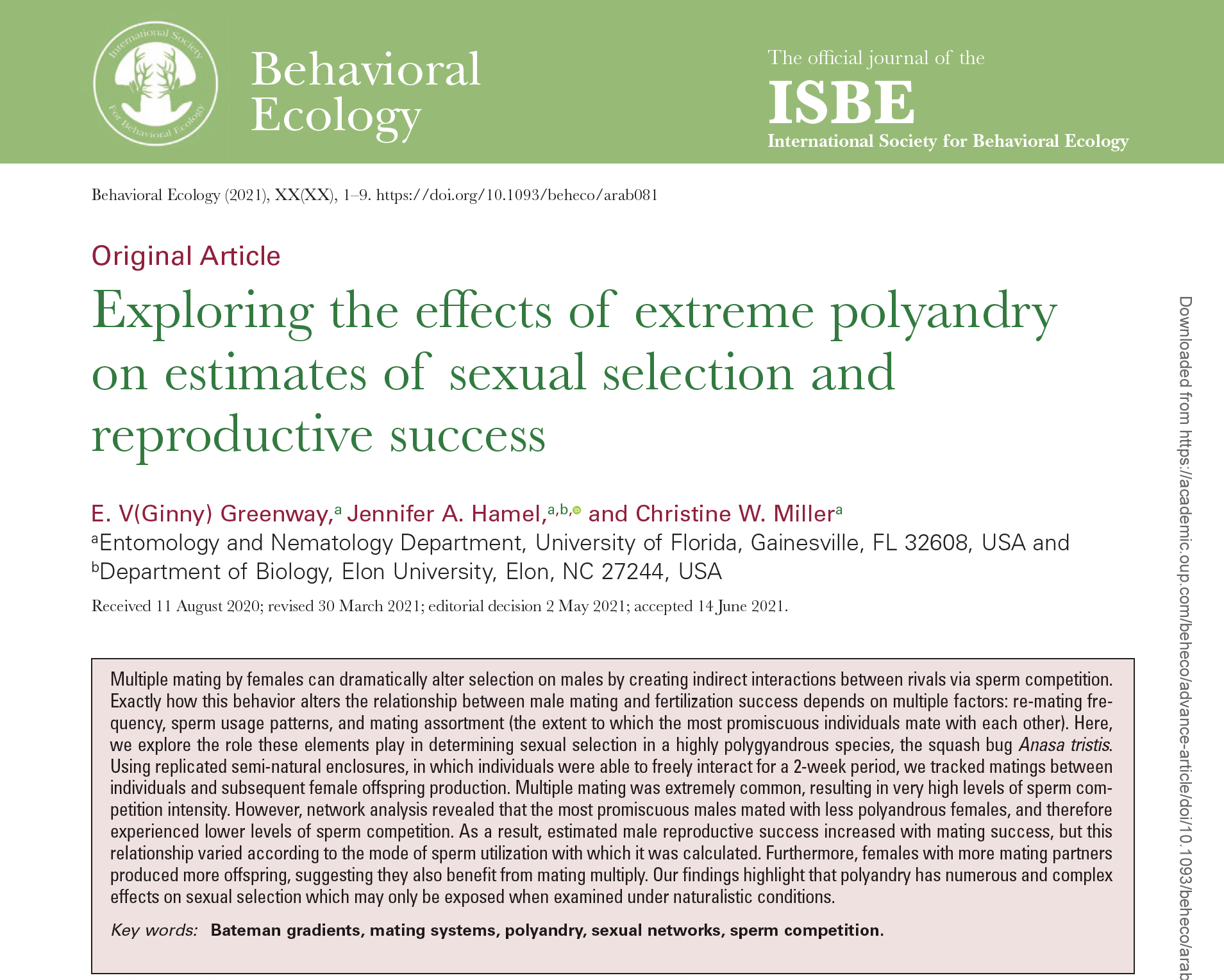Hamel and co-authors from the University of Florida published an empirical study in the current issue of the journal.
Jen Hamel, an associate professor in the Department of Biology, has co-authored an article in the current issue of the journal Behavioral Ecology that focuses on how female mating behavior can impact sexual selection and reproductive success.
The article “Exploring the effects of extreme polyandry on estimates of sexual selection and reproductive success” was co-authored by Hamel, Ginny Greenway (first author) and Christine W. Miller of the University of Florida.
This study reported the results of a large experiment that tested how polyandry -when females mate with multiple males – affects reproductive success, or the number of offspring produced by a given male or female. Reproductive success is a key measure for understanding selection, one process by which evolution occurs.
By allowing groups of male and female insects (squash bugs) to interact and mate freely under naturalistic conditions, the authors found that both males and females of this species frequently mate with multiple other individuals. This behavior results in complex networks of mating interactions, rather than the dyads that would be formed by males and females who each only mate with one partner.
The study findings suggest that both males and females appeared to benefit from frequent mating – individuals with more mating partners produced more offspring. Additionally, the order in which females mated with males (and how they used their sperm) greatly influenced estimates of male reproductive success.
The findings show that mating with multiple individuals can have numerous and complex effects on selection, and the study demonstrates that such effects may only be exposed when examined under naturalistic conditions.
Understanding the ways in which mating interactions exert selection on the behavior of insects is a focus of research in Hamel’s research group.
Behavioral Ecology is the official journal of the International Society for Behavioral Ecology and covers both empirical and theoretical research approaches on the whole range of behaving organisms, including plants, invertebrates, vertebrates, and humans.



